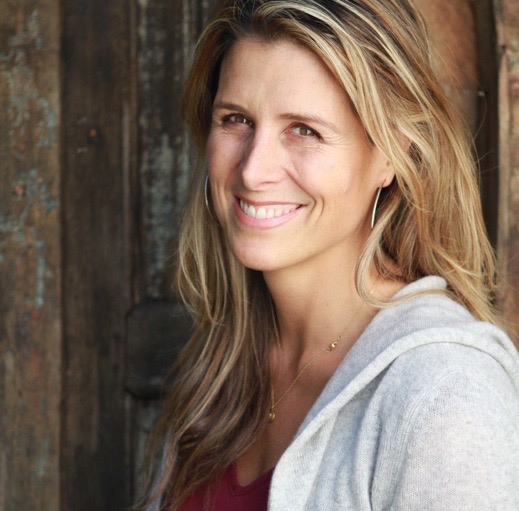I’ve been thinking a lot about success lately, especially in light of all the mental health issues and depression in kids. The real success that feels good and right on the inside. Not the success I was told to go after since I was five years old.
That one looked like this:
-Study hard at school (big tick)
-Become well rounded meaning, learn an instrument (tick), learn a language (tick x3), be good at sports (lots of ticks), etc
-Be a good Catholic (tick)
-Get into a good university (big tick)
-Study something useful (tick)
-Get a safe job that pays well and stay in it for a while (double tick)
-Take care of yourself so that you can attract a good and acceptable man (ticked that box a few times)
-Don’t become an entrepreneur. (Eventually started my own company)
– Get married to a slightly older, responsible man around the age of 30 and have a couple of kids (Didn’t happen. I fell in love with a younger man and have one child so far)
-Preferably don’t move countries and stay close to home. (Lived and worked all over the world)
What is interesting and challenging is that I followed my parents’ conventional view of success, what I have heard described as the “Consensus Consciousness”, until I just couldn’t anymore. At age 30, I left the “big and safe” job, I left the “acceptable” man that I wasn’t really in love and “blew up” my apparently perfect life. Instead, I got married late. Had kids late. Started my own business. Pursued my dreams late. Became a writer (not a stable job!) Got on my own spiritual path. And moved countries more times than I can count.
And yet today, I still wonder if I am ‘successful’. Probably because my whole body and system were wired to have a different view and definition of success. That of my family. The generations before them. Their world view. The common world view.
On my down days, my Mom and Dad’s voices boom through my conscious (and I’m sure my unconscious) mind. On my good days, I am grounded and my voice decides what is true and beautiful about my chosen life.
So, now I have a 5-year-old of my own (who is quick to tell everyone he is 5 and a half and three quarters!) and I’ve meditated and pondered on this “success” thing for a while. What do I really want to teach him about success? Do I need him to be “successful” in the world?
Do I need him, to be top of the class like I was? Would I prefer him to get a stable job rather than something uncomfortable and unpredictable like I have? Should I push him into music, languages or sports? Pay for him to go to the best schools? Go to the best universities? Should I choose one religion, or teach him about all of them? Are my choices today really setting him up (or down) for some form of future… or is all of that a lot more fluid than we imagine?
If my child chases validation and what the world calls “success”, whether it be through grades, sports victories or external appearance, he will really be chasing the following 2 things:
1) Please tell me I am good enough. 2) Please tell me I am loved.
It is what all grown-ups are chasing too, whether consciously or unconsciously. I know. I have for years.
And as an executive coach now, I see clients regularly who have created an entire life to try and answer the same 2 dominant questions.
So, I’m trying to have him know that he is good enough and he is loved, regardless of anything he does. There is nothing for him to be, do or change. Getting good grades or doing what he imagines his parents want won’t make us love him any more or less. (It’s amazing how many kids I’ve spoken to don’t feel that this is the case!)
If he naturally is great at school, fine. If he isn’t, we will help him. If he goes to college, fine. Maybe by the time he is 18, colleges will not be what they are today. If he wants to learn an instrument, fine. I will introduce options for him. Show him what is available and possible. My biggest task is to remove my own ideals, values, expectations, and dreams from his life. And that is hard.
The biggest gift we can give our children is freedom. Freedom to explore and be who they are. Not who we want them to be. My role as a parent is to truly listen to who my son is. To let him be more of that, not less.
If we make validation and success the most important thing, even if it’s unconscious on our part, we will raise kids that are living somebody else’s life. It will not be the life that was destined for them. Until one day, hopefully, they feel the familiar tug of their own heart and intuition loud enough, to get them back on track. And hopefully not resent their parents.
We too risk being examples of not truly living our own life. So many adults I coach nowadays are facing this and are making hard choices to live a different life.
What is a new definition of success for parents? Teach your kids to become familiar with what inspires them. Finding what they love. What their mission is. How to be in service to their fellow beings. How to forget about what their age or gender implies. Let them discover what is worth doing with their life. To listen to their intuition. To love themselves. To love their body. Yes, to be the best in what they want. To not seek safety but joy and meaning. To try hard things and fail and learn from that. And just to have fun along the way.
I realize this starts with me.
Am I living this new definition in my own life?
Am I happy? Inspired? In service?
Am I living a life of meaning? Am I having fun?
Parenting is always an invitation to look at how we are doing, not only how our children are doing.
Its been a long and hard journey to unglue myself from all that I was told would lead me to success. When I was there (with the degrees, awards, big jobs, money, the coveted man, the stuff…), I didn’t feel successful. I felt empty. I felt far from happy. I felt even further away from being free. I speak about this more in my TED Talk here.
I don’t want to do that to my kids. Yes, it’s hard to not push them to read more, to be top of the class, to do every sport, to be the best, basically to keep up with what the world expects and projects onto them (and on me as a parent!)
It doesn’t mean they are mutually exclusive. It just means we can parents with different values in first place.
For more information on Ariane’s work with parents and children, please visit www.arianedebonvoisin.com and her book series www.gigglesandjoy.com


